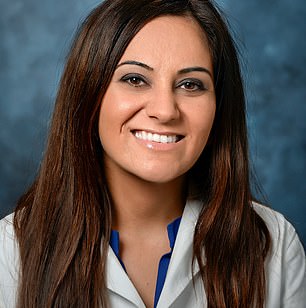Dr. Karen Zaghiyan urges people to consume more dairy
A leading colon cancer doctor has revealed nine foods that could possibly reduce the risk of developing this deadly disease.
Los Angeles-based Dr. Karen Zaghiyan says the first item on her list is dairy products like whole milk, reduced-fat milk, lactose-free milk, yogurt, and cheese.
It is believed that dairy may protect against cancer due to its high calcium content, which has been shown to reduce inflammation in the colon and prevent the growth of cancer cells.
The vitamin D found in dairy products may also play an important role in preventing disease by helping the body absorb calcium from dairy products.
Another item on Dr. Zaghiyan’s list of cancer-fighting foods is chocolate.
He emphasizes that the health benefits only come from dark chocolate and not from regular sweets like Hershey’s and Cadbury’s.
This type of chocolate has been shown in some studies to protect against the development of colorectal cancer, although Dr. Zaghiyan admits that more research is needed to confirm the link.
She recommends a high-quality dark chocolate with at least 70 percent cocoa, and the higher the percentage, the better.
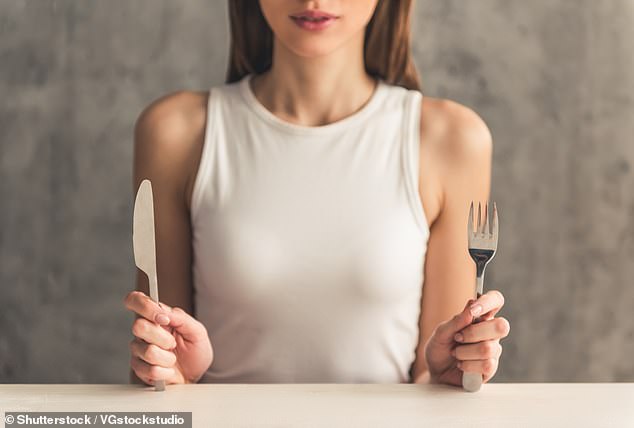
A leading colon cancer doctor has revealed nine foods that could possibly reduce the risk of developing this deadly disease.
Dr. Zaghiyan says that the polyphenols found in dark chocolate “protect against the development of free radicals that accumulate and lead to the development of cancer.”
These substances have been shown to reduce inflammation, which is a driver of tumor growth.
However, the American Cancer Society warns that chocolate “is still candy and has extra calories, sugar, and fat,” so it’s best to eat it “in moderation.”
Being overweight is also a risk factor for colon cancer.
The United States has the sixth highest rate of early-onset cancers, with 87 cases per 100,000 people under age 50, and colon cancer is among the fastest growing.
Researchers at the University of Missouri-Kansas City recently analyzed colorectal cancer rates in people ages 10 to 44 over the past two decades and found that cases had increased in all age groups.
The rate of colorectal cancer increased by 500 percent among children ages 10 to 14 and 333 percent among adolescents ages 15 to 19.
Rates rose 71 percent among people ages 30 to 34, to seven cases per 100,000 people. Among people ages 35 to 39, rates rose 58 percent to 12 cases per 100,000 people.
Many young patients have their symptoms dismissed for more benign gastrointestinal conditions, leading to more aggressive disease.
If you’re looking for a good way to start your day, Dr. Zaghiyan recommends stocking up on whole grain breakfast cereals.
Oatmeal is the best – it’s high in fiber and keeps you full, which has the added effect of cleansing your colon and preventing you from overeating.
But unlike other experts, Dr. Zaghiyan says you don’t have to fear cereals or bread, as long as they contain whole grains.
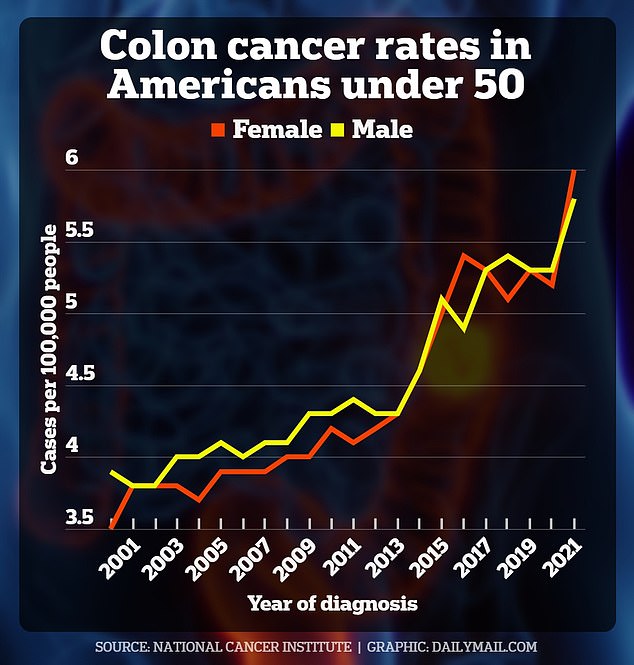
The graph above shows the increase in colorectal cancers in men and women in the US from 2000 to 2021.
One study suggests that eating three servings (90 grams) of whole grains a day reduces the risk of colorectal cancer by 17 percent.
Another breakfast option could be fruit.
Dr. Zaghiyan criticized the prevailing myth among some health gurus that fruit is low because it is high in sugar.
She explains that it actually “protects against many intestinal conditions, including colorectal cancer.”
The fruit is high in fiber, which slows the release of sugar into the bloodstream and prevents disease-related glucose spikes.
He continues: “Studies have shown that purple, red, green and white fruits, as well as berries and even dried fruits such as dates and figs, protect against colorectal cancer.”
The Detroit Medical Center says fruits can help fight colon cancer because they “are generally rich in antioxidants, fiber, and species-specific phytochemicals that can help protect you from digestive problems.”
Meanwhile, experts say that apples, blackberries, bananas, blueberries, oranges, pears and raspberries are some of the best sources of fiber and it is good to consume a daily intake of different fruits.
Likewise, vegetables are also praised for their benefits in fighting colon cancer.
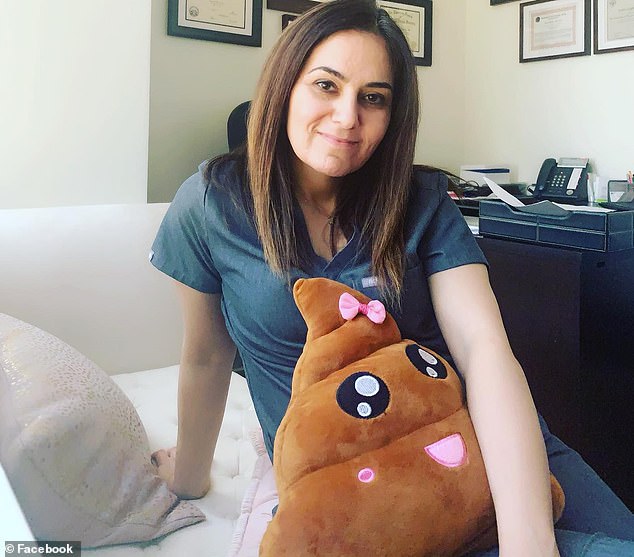
Los Angeles-based Dr. Karen Zaghiyan says the first item on her list of foods to protect against colon cancer is dairy products.
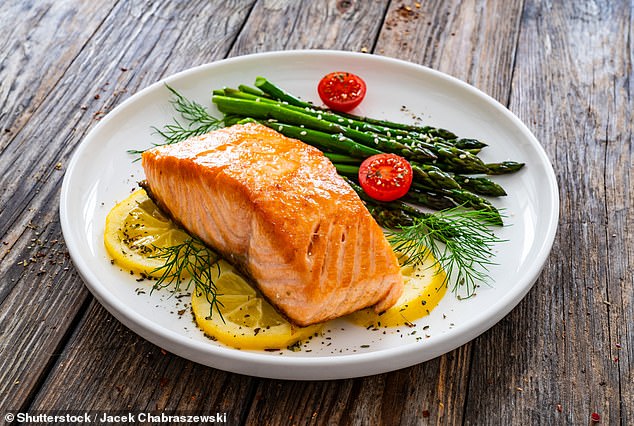
One study found that a Pescatarian diet was associated with a 45 percent reduction in the risk of colorectal cancer.
Dr. Zaghiyan says: “Your mother was right: vegetables are good for you and specifically contain important phytonutrients (natural compounds found in plants that can promote good health), as well as many vitamins and minerals that are beneficial for your health, as well as for your intestinal health.’
As for which vegetables are best, Dr. Zaghiyan suggests stocking up on cruciferous vegetables, which are cool-weather vegetables and most have flowers made up of four petals that resemble a cross.
She says the best cruciferous vegetables are broccoli and cauliflower, and dark green vegetables like kale and spinach also have health benefits, being high in vitamins, minerals and fiber.
Sticking to the garden, legumes and nuts are another of Dr. Zaghiyan’s recommendations.
She says products like lentils, beans, soy and chickpeas have been consistently shown to “protect against the development of colorectal cancer and are increasingly good for the gut.”
One study found that a 28 g serving of nuts per day was associated with a 33 percent lower risk of colorectal cancer, while a 100 g serving of legumes was associated with a 21 percent lower risk.
Moving on to something more substantial, Dr. Zaghiyan says she’s a big proponent of fish and that “studies have consistently shown that eating fish weekly protects against the development of colorectal cancer.”
She continues: ‘These include fatty fish, lean fish and, believe it or not, canned fish, guys.
“So the more fish you eat, the better it will be.”
a study found that a Pescatarian and vegetarian diet was associated with a 45 percent reduction in the risk of colorectal cancer.
Studies have shown that Pescatarians are also protected against developing colorectal cancer.
As for drinks, Dr. Zaghiyan recommends tea as your first choice.
One study showed that tea reduces the risk of colon cancer by 24 percent and Dr. Zaghiyan says it is packed with antioxidants that have a variety of health benefits.
And he adds: “Both black tea and green tea have been shown to have protective effects.”
“But green tea in particular has consistently been shown to have a protective effect against the development of colorectal cancer, especially when drunk every day.”
To top it off, Dr. Zaghiyan says that coffee is one of her favorite things, as it serves the dual purpose of waking you up and protecting you against cancer.
She tells her followers on TikTok: ‘If you drink coffee, you’re lucky because it protects against the development of colorectal cancer.
“Believe it or not, drinking several cups a day, like three or four cups, proved to be even more protective.”
In a study by the American Cancer Society, researchers found that coffee drinkers who did not smoke had a lower risk of death from colorectal cancer.
A more recent body of research, as Dr. Zaghiyan highlighted, showed that decaffeinated coffee also helped reduce the risk of colon and rectal cancer.


